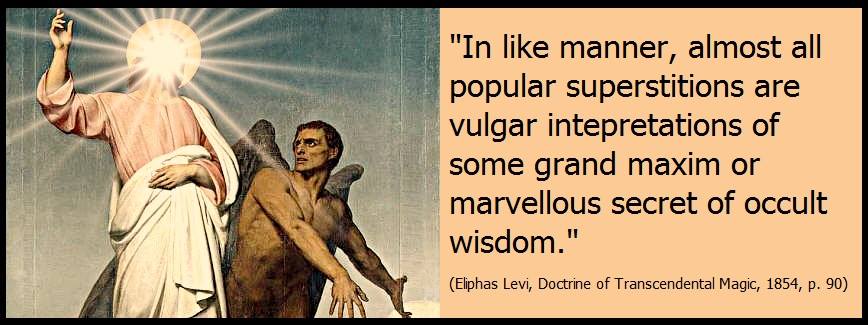Page 271
mic forces to manifest themselves in eternal correlation is but a divine electricity, or rather galvanism, and that the sun is but one of the myriad magnets disseminated through space — a reflector — as General Pleasonton has it. That the sun has no more heat in it than the moon or the space-crowding host of sparkling stars. That there is no gravitation in the Newtonian sense, but only magnetic attraction and repulsion; and that it is by their magnetism that the planets of the solar system have their motions regulated in their respective orbits by the still more powerful magnetism of the sun, not by their weight or gravitation. This and much more they may learn; but, until then we must be content with being merely laughed at, instead of being burned alive for impiety, or shut up in an insane asylum.
The laws of Manu are the doctrines of Plato, Philo, Zoroaster, Pythagoras, and of the Kabala. The esoterism of every religion may be solved by the latter. The kabalistic doctrine of the allegorical Father and Son, or [[Pater]] and [[Logos]] is identical with the groundwork of Buddhism. Moses could not reveal to the multitude the sublime secrets of religious speculation, nor the cosmogony of the universe;the whole resting upon the Hindu Illusion, a clever mask veiling the Sanctum Sanctorum, and which has misled so many theological commentators
Page 272
The kabalistic heresies receive an unexpected support in the heterodox theories of General Pleasonton. According to his opinions (which he supports on far more unimpeachable facts than orthodox scientists theirs) the space between the sun and the earth must be filled with a material medium, which, so far as we can judge from his description, answers to our kabalistic astral light. The passage of light through this must produce enormous friction. Friction generates electricity, and it is this electricity and its correlative magnetism which forms those tremendous forces of nature that produce in, on, and about our planet the various changes which we everywhere encounter. He proves that terrestrial heat cannot be directly derived from the sun, for heat ascends. The force by which heat is effected is a repellent one, he says, and as it is associated with positive electricity, it is attracted to the upper atmosphere by its negative electricity, always associated with cold, which is opposed to positive electricity. He strengthens his position by showing that the earth, which when covered with snow cannot be affected by the sun’s rays, is warmest where the snow is deepest. This he explains upon the theory that the radiation of heat from the interior of the earth, positively electrified, meeting at the surface of the earth with the snow in contact with it, negatively electrified, produces the heat.
Thus he shows that it is not at all to the sun that we are indebted for light and heat; that light is a creation sui generis, which sprung into existence at the instant when the Deity willed, and uttered the fiat: “Let there be light”; and that it is this independent material agent which produces heat by friction, on account of its enormous and incessant velocity. In short, it is the first kabalistic emanation to which General Pleasonton introduces us, that Sephira or divine Intelligence (the female principle), which, in unity with En-Soph, or divine wisdom (male principle) produced every thing visible and invisible. He laughs at the current theory of the incandescence of the sun and its gaseous substance. The reflection from the photosphere of the sun, he says, passing through planetary and stellar spaces, must have thus created a vast amount of electricity and magnetism. Electricity, by the union of its opposite polarities, evolves heat and imparts magnetism to all substances capable of receiving it. The sun, planets, stars, and nebulae are all magnets, etc.
If this courageous gentleman should prove his case, future generations will have but little disposition to laugh at Paracelsus and his sidereal or astral light, and at his doctrine of the magnetic influence exercised by
Page 273
the stars and planets upon every living creature, plant, or mineral of our globe. Moreover, if the Pleasonton hypothesis is established, the transcendent glory of Professor Tyndall will be rather obscured. According to public opinion, the General makes a terrible onslaught on the learned physicist, for attributing to the sun calorific effects experienced by him in an Alpine ramble, that were simply due to his own vital electricity.

Moe is the founder of GnosticWarrior.com. He is a father, husband, author, martial arts black belt, and an expert in Gnosticism, the occult, and esotericism.

![How one in the province of the Northumbrians, rose from the dead, and related many things which he had seen, some to be greatly dreaded and some to be desired [Circ. 696 A.D.] | Book 5 | Chapter 11 How one in the province of the Northumbrians, rose from the dead, and related many things which he had seen, some to be greatly dreaded and some to be desired [Circ. 696 A.D.] | Book 5 | Chapter 11](https://www.gnosticwarrior.com/wp-content/plugins/contextual-related-posts/default.png)




